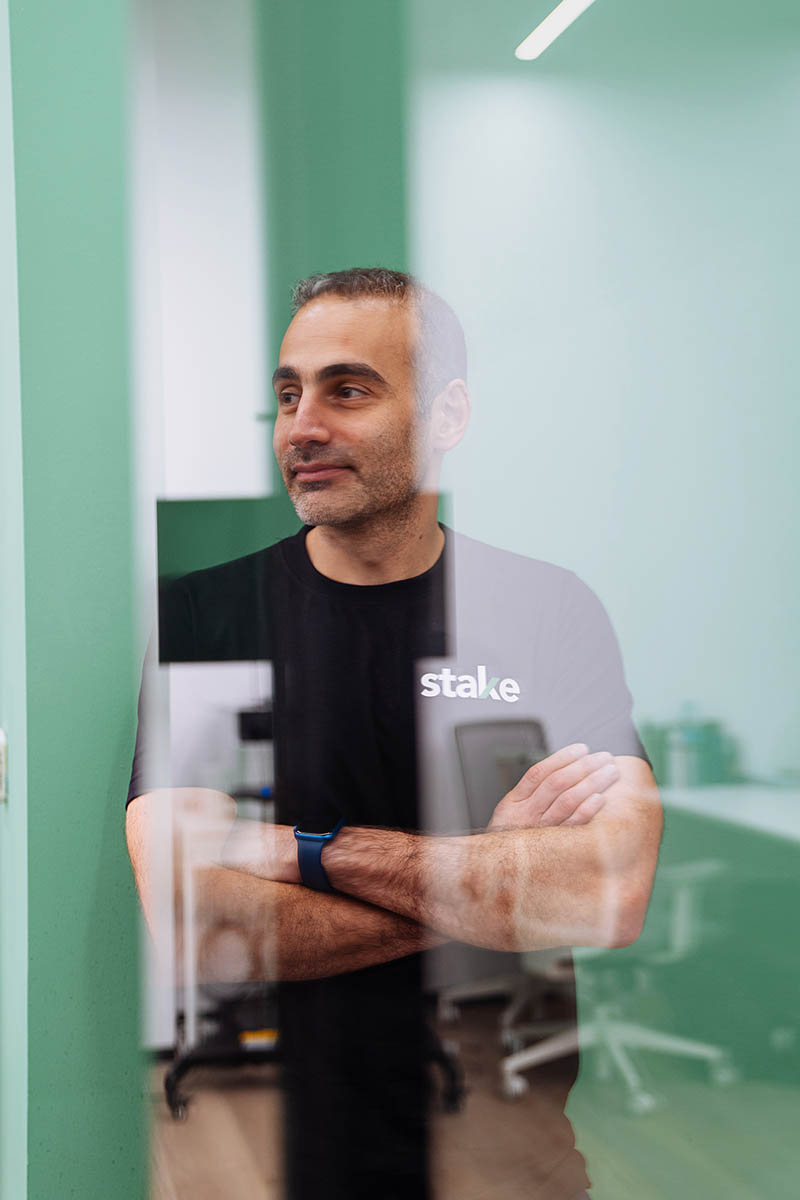Investing in property has been a focus of Rami Tabbara’s life since he was young. In Dubai, “our parents always tell us that as soon as you make money, you have to put it in property,” he says. At 23 years old, he bought what he could afford: a one-bedroom apartment that was still under construction.
It didn’t go to plan, taking three years for him to get the keys. But that experience taught him “a lesson to focus on ready and income–generating properties,” he says. It ultimately led him to co-found Stake, a company with the goal of making investing in real estate affordable and accountable.
Dubai’s real estate market is booming, with cranes dotting the skyline, new property developments being advertised, and neighborhoods popping up out of the desert. The market is at a high point with no signs of slowing down, says Prathyusha Gurrapu, head of research and advisory at Dubai-based property consultancy Core. The second quarter of this year “has seen the highest amount of residential transactions in Dubai ever, in terms of both number of transactions and combined sales values,” she says. According to the Dubai Land Department, over 43,000 property transactions exceeding $31.3 billion were recorded in the first half of 2022 alone.

This level of activity has led to rental growth in Dubai outpacing that in New York, London, Singapore, and Hong Kong, according to data from Savills. Efforts to broaden Dubai’s visa system have made it increasingly attractive for people to come and live and invest there, but challenges remain for foreign investors. It is difficult for foreigners to bank and get a mortgage in the UAE, so most international investors have to buy properties in cash, says Gurrapu, leaving the opportunity open only to the wealthiest.
Read More: How One Company Uses Technology to Grow Tomatoes in the Desert
Tabbara wants to enable smaller retail investors to get involved in the buoyant Dubai real estate market. He co-founded Stake in 2019 with the goal of lowering the barrier of entry for investors who don’t have access to a large down payment or the full sale price in cash. Using Stake’s app, people around the world can invest in property in Dubai with as little as $136 (AED 500). Investors browse and buy into properties that have been fully vetted by the company. When a property is fully funded, Stake buys it and investors get shares proportionate to their investment. Stake manages the property and investors receive monthly dividends.
Tabbara also hopes to guide new investors. Before founding Stake, he worked in sales for Dubai–based property developers and encountered what he describes as a lack of transparency. “I was seeing retail investors not getting the best deals, putting their life savings and children’s college funds into the wrong property,” he says. To counter this, the company is regulated by the Dubai Financial Services -Authority (DFSA) and worked with graduate students from MIT to develop an algorithm that evaluates the quality of potential real estate deals.
Gurrapu says that there’s a gap in Dubai’s market for retail investors, and that platforms like Stake are quickly gaining popularity as the real estate market soars.
But bringing real estate into the digital space is still a challenge. Although the tradition of real estate investing is strong in Dubai, “the process of investing is clunky, full of hassle, and still mostly done offline,” says Tabbara. He’s hoping a new generation of investors can transform the real estate market from one full of cumbersome bureaucracy to simple, accessible, and completely global.
- The 100 Most Influential People of 2024
- Coco Gauff Is Playing for Herself Now
- Scenes From Pro-Palestinian Encampments Across U.S. Universities
- 6 Compliments That Land Every Time
- If You're Dating Right Now, You're Brave: Column
- The AI That Could Heal a Divided Internet
- Fallout Is a Brilliant Model for the Future of Video Game Adaptations
- Want Weekly Recs on What to Watch, Read, and More? Sign Up for Worth Your Time